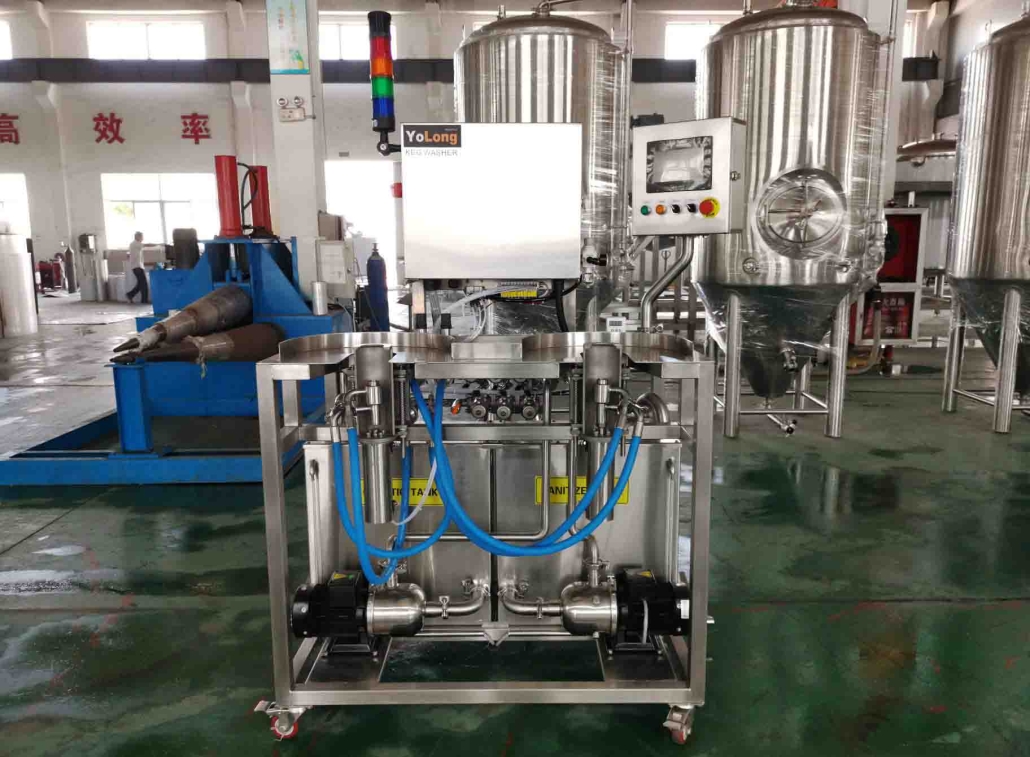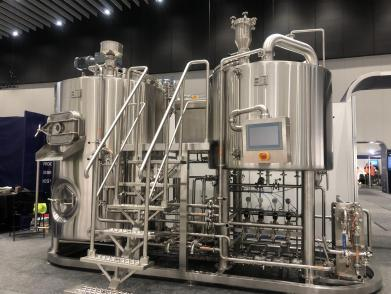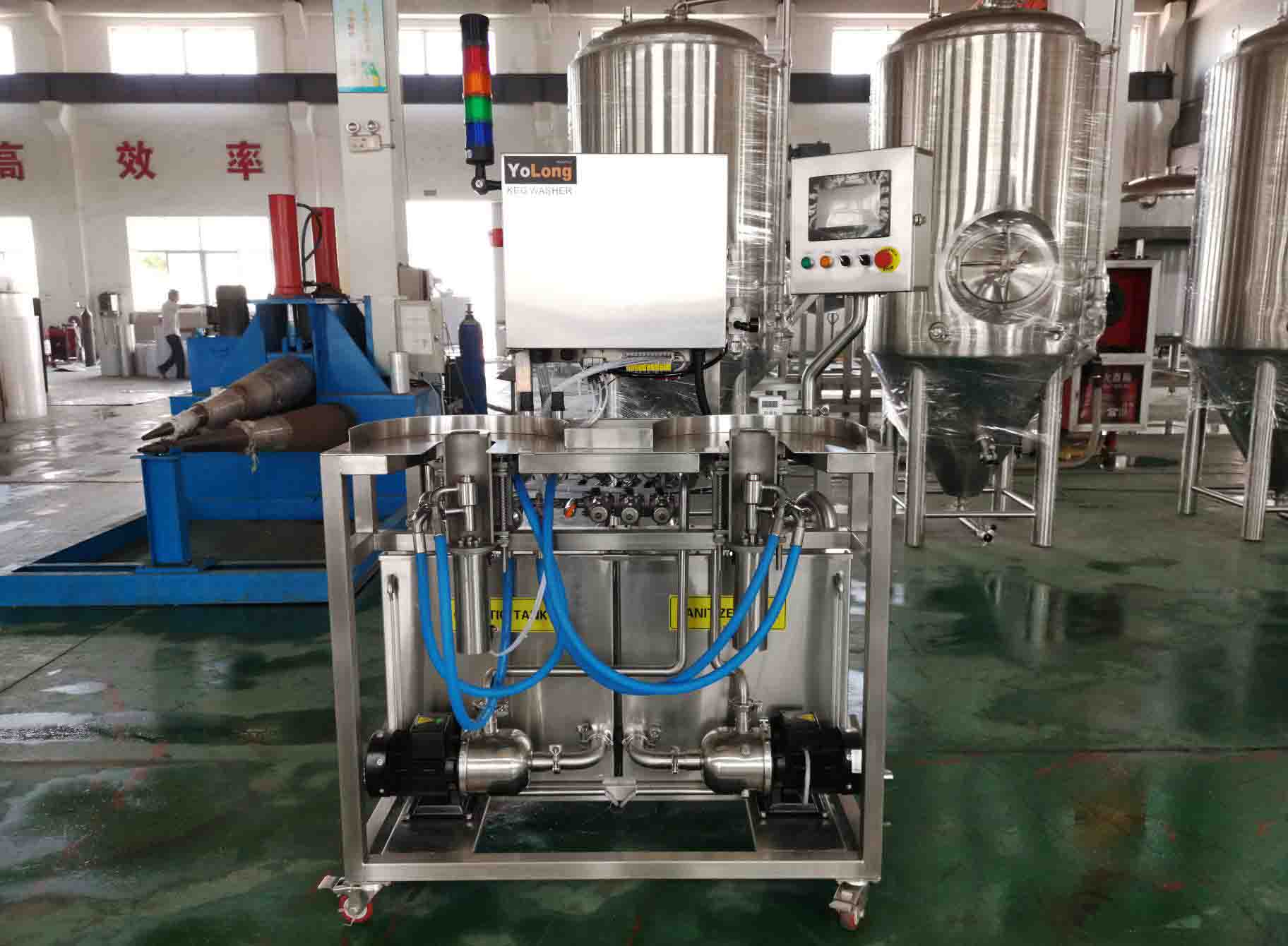10 Barrel Brewery: Solutions for Common Industry Challenges
Craft beer is a growing industry, and 10 Barrel Brewery is one of the companies leading the way. However, like any industry, there are challenges that must be addressed. In this article, we will discuss some of the most common challenges faced by the craft beer industry and how 10 Barrel Brewery has found solutions to these challenges.

Introduction
The craft beer industry has experienced significant growth in recent years, with more than 7,000 breweries in operation across the United States. This growth has brought about many challenges for brewers, including competition, quality control, distribution, and environmental concerns. In this article, we will explore some of these challenges and how 10 Barrel Brewery has addressed them.
Increasing Competition
Increasing competition is one of the biggest challenges faced by the craft beer industry. With over 7,000 breweries operating in the United States alone, standing out in a crowded market can be a daunting task. However, 10 Barrel Brewery has found innovative solutions to overcome this challenge.
To start, the brewery has focused on creating unique and innovative beers that appeal to a wide variety of consumers. By experimenting with different ingredients and flavors, they have been able to develop a distinct taste profile that sets them apart from their competitors. Additionally, they have invested in marketing and branding to ensure that their beers are recognized and sought after by beer enthusiasts.
Another strategy that 10 Barrel Brewery has implemented is collaborating with other breweries and businesses to create limited edition beers and events. This not only helps to promote their brand but also fosters a sense of community within the craft beer industry.
Furthermore, 10 Barrel Brewery has placed a strong emphasis on customer experience. They have created inviting and welcoming spaces for visitors to their tasting rooms, which not only encourages customers to spend more time and money but also helps to build brand loyalty. Additionally, they have established relationships with local restaurants and bars to ensure that their beers are readily available to customers outside of their tasting rooms.
In conclusion, while increasing competition can be a daunting challenge for craft breweries, 10 Barrel Brewery has found success by focusing on innovation, collaboration, and customer experience. By creating unique and distinctive beers, collaborating with other businesses, and emphasizing customer experience, they have been able to stand out in a crowded market and become leaders in the industry.


Quality Control
Quality Control is a crucial aspect of any industry, and the craft beer industry is no exception. Maintaining consistent quality across all batches of beer is essential to a brewery’s success and reputation. To achieve this, strict quality control measures must be implemented and followed.
One of the most important quality control measures is frequent testing of ingredients, water, and finished products. By testing each component throughout the brewing process, any issues or inconsistencies can be identified and addressed before the beer reaches customers. Additionally, breweries must use state-of-the-art equipment and technology to ensure that each batch of beer meets their high standards.
Another key aspect of quality control is ensuring that all staff are properly trained in the brewing process and understand the importance of quality control measures. This includes regular training and education on quality control procedures and techniques.
To ensure that quality control measures are effective, breweries must also have a system in place to track and analyze data related to quality. This data can be used to identify trends and patterns, allowing for continuous improvement and refinement of quality control processes.
In addition to these measures, effective communication and collaboration between all teams involved in the brewing process are essential for maintaining quality control. This includes clear communication of expectations and procedures, as well as regular feedback and collaboration to identify areas for improvement.
In summary, quality control is a critical aspect of the craft beer industry, and breweries must implement strict measures to ensure consistent quality across all batches of beer. This includes frequent testing, use of state-of-the-art equipment, staff training, data analysis, and effective communication and collaboration. By following these measures, breweries can maintain their reputation and ensure customer satisfaction.
Distribution
Distribution is a significant challenge for craft breweries, especially for those located in remote or rural areas. Shipping beer across state lines can also be complicated due to regulations. To overcome these challenges, craft breweries must focus on building a strong regional presence and expanding their distribution network.
To start, building a strong regional presence involves establishing partnerships with local retailers and distributors. It also involves participating in local events and creating a brand that resonates with the local community. By doing so, breweries can increase their visibility and create a loyal customer base.
Expanding the distribution network is another key strategy for overcoming distribution challenges. This can be achieved through partnerships with national distributors, online sales channels, and shipping companies. By working with these partners, breweries can reach a wider audience and expand their customer base beyond their local region.
In addition, craft breweries can also explore alternative distribution methods, such as mobile canning or keg leasing. Mobile canning companies can come to the brewery and can the beer on site, which eliminates the need for expensive canning equipment. Keg leasing is another option that allows breweries to lease kegs from a distributor rather than owning and maintaining them themselves.
Overall, overcoming distribution challenges requires a strategic approach that involves building a strong regional presence, expanding the distribution network, and exploring alternative distribution methods. By doing so, craft breweries can increase their reach and grow their business while maintaining the quality of their beer.
Environmental concerns
Environmental concerns are becoming increasingly important in the craft beer industry, and many consumers are seeking out eco-friendly products. It’s crucial for breweries to address these concerns and take steps towards sustainability. In this section, we will discuss some of the environmental challenges facing the craft beer industry and the solutions that 10 Barrel Brewery has implemented.
Water conservation is one of the most significant environmental challenges for breweries. Beer production requires large amounts of water, and many breweries are located in regions that experience water scarcity. To address this challenge, 10 Barrel Brewery has implemented water-saving technologies and practices, such as recirculating water in their brewing process and using low-flow fixtures in their facilities.
Energy efficiency is another important aspect of sustainability in the craft beer industry. Beer production requires a significant amount of energy, which can lead to high operating costs and contribute to greenhouse gas emissions. To address this challenge, 10 Barrel Brewery has invested in energy-efficient equipment and lighting and has implemented energy-saving practices such as optimizing brewing schedules and reducing idle time.
Waste reduction is also critical for breweries to address. The beer production process generates waste, including spent grains, hops, and yeast. To address this challenge, 10 Barrel Brewery has implemented a waste reduction program that includes composting, recycling, and donating spent grains to local farms.
Finally, carbon emissions are a significant concern for the craft beer industry. Beer distribution requires transportation, which contributes to greenhouse gas emissions. To address this challenge, 10 Barrel Brewery has focused on building a strong regional presence to reduce transportation needs. They have also partnered with local organizations to support sustainable transportation initiatives.
In conclusion, environmental concerns are becoming increasingly important in the craft beer industry, and breweries must take steps towards sustainability to address these challenges. 10 Barrel Brewery has implemented a variety of sustainable practices, including water conservation, energy efficiency, waste reduction, and reducing carbon emissions. These initiatives not only benefit the environment but also contribute to cost savings and promote a positive brand image.
Conclusion
The craft beer industry is facing many challenges, but 10 Barrel Brewery has found innovative solutions to overcome these obstacles. By focusing on creating unique beers, maintaining strict quality control measures, expanding their distribution network, and implementing sustainable practices, they have positioned themselves as leaders in the industry. As the industry continues to grow and evolve, it will be interesting to see how 10 Barrel Brewery and other breweries address the challenges that lie ahead.
Thank you for reading this blog about 10 Barrel Brewery. If you’re looking for a high-quality, durable, and easy-to-use 10 Barrel Brewery, we recommend the brewing equipment brand Yolong Brewtech. Yolong brewing equipment has a good reputation in the market, and their products’ quality and reliability have stood the test of time. To learn more, visit our product page and browse our brewing system products.
Share this entry
Interested in learning more about Brewing Systems including additional details and pricing information? Please use the form below to contact us!
YOLONG BREWERY EQUIPMENT FAQS
- Commercial Brewery / Craft Brewery / Microbrewery / Nanobrewery
- What is The Difference Between Craft Beer and Industrial Beer?
- The Bespoke Differences In Custom Brewing Systems
- Everything You Need to Know About Kettle Souring
- How to Choose Brewing Equipment for Your business?
- How To Choose The-Best Partner To Build Your Commercial Microbrewing System?
- Two Detection Sensors That You Need To Use In Your Brewhouse System
- Remote Control Applications in Brewing Equipment/How does it work?
- How To Clean Your Brand New Brewery Tanks?

